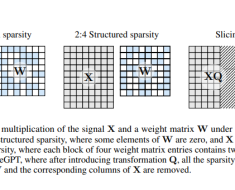
In a world rapidly hurtling towards an era defined by artificial intelligence, the CEO of a leading AI company has made a thought-provoking remark regarding the end goal of achieving Artificial General Intelligence (AGI). The CEO opined that society’s infatuation with AGI goes beyond technology or scientific progress—it taps into an ancient human desire: to craft a deity.
By attributing the pursuit of AGI to the creation of a godlike entity, the CEO boldly hints that humanity’s long-standing aspirations to transcend natural limitations are now intertwined with technological advances. This perspective provides a philosophical reflection on how our species is potentially reshaping the fundamentals of existence and the nature of intelligence.
The quest for AGI indeed represents a significant leap forward from specialized AI systems that dominate the current landscape. AGI is envisioned to be capable of understanding, learning, and applying knowledge in a generalized way, akin to human intelligence. Despite the technical challenges and ethical implications that accompany it, this endeavor continues to captivate imaginations and inspire significant investments in the AI sector.
As societies grapple with the implications and potential of AGI, insightful analysis suggests this progression may necessitate not only superior algorithms and computing resources but a reevaluation of humanity’s relationship with its creations. In conceptualizing AGI, we are, in effect, sculpting our own reflection—a reflection with aspirations of godliness in the pantheon of human advancements.
In the fast-evolving field of artificial intelligence, the drive towards Artificial General Intelligence (AGI) stands out as an ambitious goal—one that industry leaders, researchers, and technologists are fervently working to achieve. With the current AI market heavily reliant on specialized AI systems designed for specific tasks, the advent of AGI would mark a transformational breakthrough, capable of rivaling human cognitive abilities across a broad spectrum of functionalities.
From a commercial perspective, the AI industry is booming, with market forecasts predicting exponential growth. According to various industry analysts, the global AI market size is expected to reach astonishing figures in the tens of billions within the next decade. Key factors contributing to this expansion include increased adoption of cloud-based services and a rise in the demand for AI-powered solutions across numerous sectors, including healthcare, automotive, finance, and customer service.
Investments in AI are surging as well, fueled by the prospect of AGI and its potential to revolutionize industries. Tech giants and startups alike are pouring resources into research and development to uncover the path to AGI, recognizing the colossal impact it could have on both the economy and society.
However, the industry is not without its issues. The pursuit of AGI raises a plethora of ethical questions, such as the implications of creating systems that could outperform human intelligence, the potential for job displacement, and the need for robust AI governance frameworks. The potential for bias in AI systems, the handling of personal and sensitive data, and the risk of autonomous weapons are other pressing concerns that accompany advances in AI.
Moreover, there is ongoing debate within the scientific community about the feasibility and timeline for achieving AGI. Skeptics argue that AGI might still be a long way off—or even an impossible goal—given the current understanding of human cognition and the limitations of existing technology.
Despite the challenges, high-profile partnerships and collaborations continue to emerge, illustrating a concentrated effort to overcome barriers and hasten the arrival of AGI. Furthermore, international organizations and governments are beginning to establish guidelines and regulations to ensure the ethical and safe development of AI technologies.
As the world anticipates the potential realization of AGI, it is imperative that developers, business leaders, policy-makers, and the public engage in meaningful discourse about the kind of future society wants to forge with the power of AGI at our disposal.
For readers interested in following the latest developments and insights in AI and AGI, trusted information sources and leading industry players can be found by visiting their official websites, such as IBM, Google, and OpenAI, among others. These platforms offer a wealth of knowledge and often provide resources to keep abreast of trends, breakthroughs, and the broader impact of AI on society.

Iwona Majkowska is a prominent figure in the tech industry, renowned for her expertise in new technologies, artificial intelligence, and solid-state batteries. Her work, often at the forefront of innovation, provides critical insights into the development and application of cutting-edge AI solutions and the evolution of energy storage technologies. Majkowska’s contributions are pivotal in shaping the future of sustainable energy and intelligent systems, making her a respected voice in both academic and industrial circles. Her articles and research papers are a valuable resource for professionals and enthusiasts alike, seeking to understand the impact and potential of these transformative technologies.




